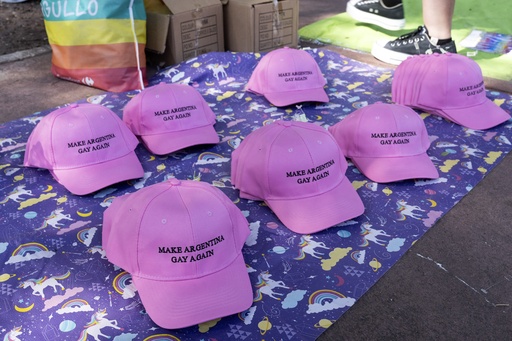
Thousands of people took to the streets in Buenos Aires and various cities across Argentina to express their dissent against President Javier Milei’s remarks made at the recent World Economic Forum in Davos, where he criticized concepts such as ‘wokeism’, feminism, and other progressive movements.
Participants in the protests displayed vibrant rainbow flags and held placards proclaiming “rights are not negotiable.” Organized by the LGBTQ+ community, the event was referred to as the “Federal March of Anti-Fascist and Anti-Racist Pride.” It served as a response to Milei’s speech on January 23, which many viewed as an attack on the rights of marginalized groups, highlighting what they termed “the economic violence, political persecution, and sexual repression” instigated by his administration.
Supporters from various human rights organizations, labor unions, and political factions came together to participate in this unified demonstration.
During his address in Switzerland, Milei condemned what he called “sick wokeism” and voiced opposition to social welfare initiatives, gender policies, and efforts related to climate change, suggesting that extreme gender ideologies could amount to child abuse.
Protester Germán Paladino, who works as an industrial engineer, expressed concerns that the Milei administration was neglecting vital public sectors such as healthcare and education, instead choosing to target individuals’ private lives. He mentioned, “While I am unsure if this march will lead to immediate change, it may urge a reconsideration of Milei’s aggressive rhetoric.”
Another participant, a 33-year-old visual artist named Milagros, stated, “I am here to stand up for our rights—those we have fought for and those that are presently under threat.”
Throughout recent years, Argentina has made significant strides in enacting progressive legislation that protects sexual diversity and upholds equal marriage rights, reflecting a society that values inclusivity and equal recognition for all individuals.

